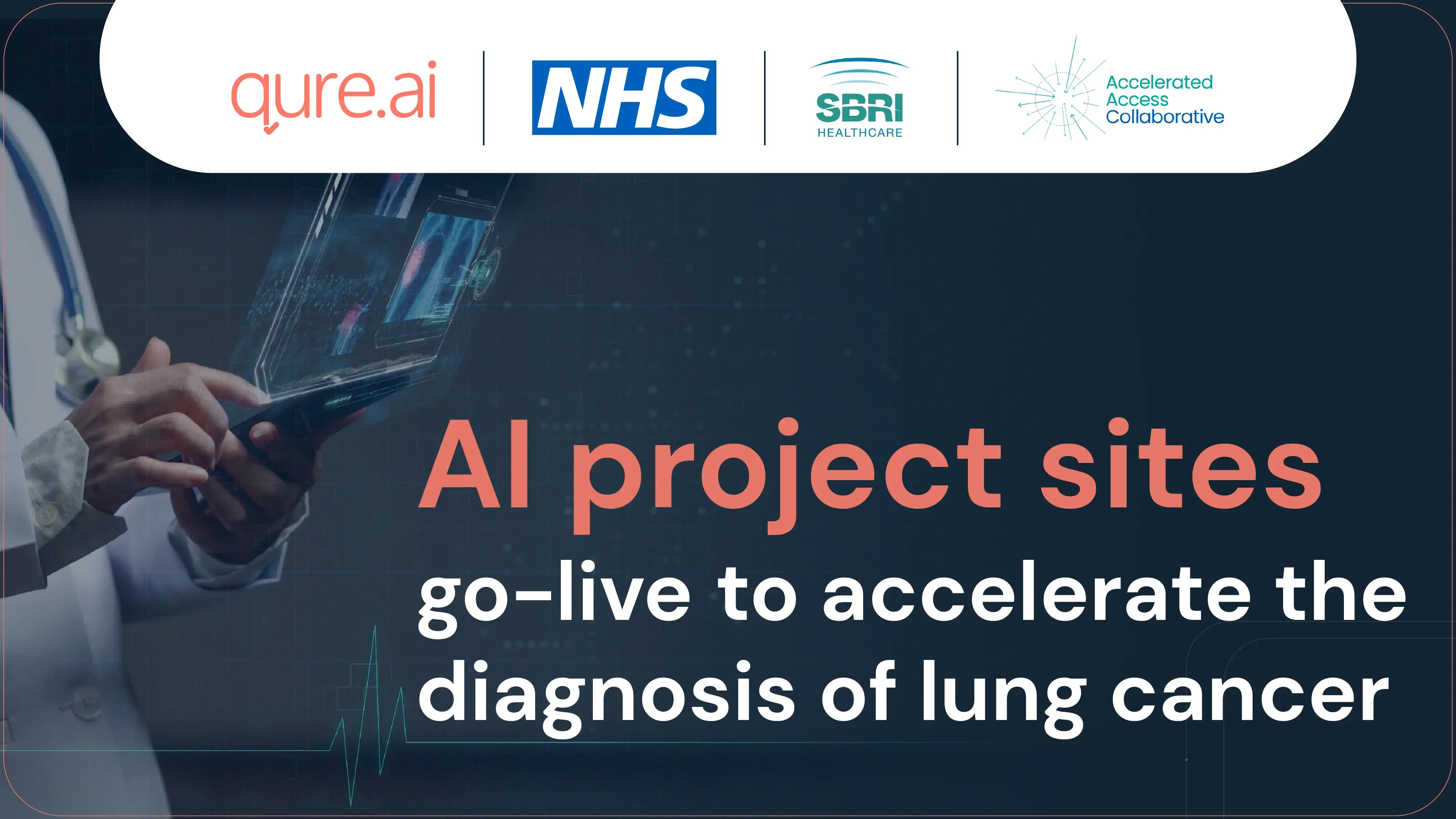LungIMPACT trial starts gathering real-world evidence with aim of saving lives now and into the future.
Back
A collaborative study between UK academia, NHS hospitals and AI innovator Qure.ai has commenced to gather real-world evidence of AI-assisted diagnosis of lung cancer, which could help save thousands of lives.
The ‘LungIMPACT’ trial is using Qure’s qXR (CE Class IIb per EU MDR certified) solution to triage chest X-rays referred by GPs with the aim of identifying the presence of suspected lung abnormalities and give immediate reporting. This may then enable a patient to be referred for a same-day CT scan if lung cancer is suspected, speeding up access to a confirmed diagnosis and treatment planning.
The trial is now underway with Qure’s AI tool implemented at two NHS hospital Trusts, further NHS sites will also be deployed and ready to contribute to the study in a couple of months.
“Every year in the UK more than 35,500 people lose their lives due to lung cancer. We know that the speed of diagnosis is critical to achieve the best outcomes in lung cancer and to reduce stress and worry for patients. We have previously found that only a 15-day reduction in time to diagnosis increases survival by 200 days and immediate action on a chest X-ray that is suspicious for lung cancer reduces time to diagnosis by 30 days. AI may be a way to identify suspicious chest X-rays rapidly. Studies with AI are needed to evaluate the clinical value and impact to ensure safe and effective implementation,” states Professor David Baldwin, Chair of the UK Clinical Expert Group for Lung Cancer and Mesothelioma; National Clinical Lead for Lung Cancer, NHSE/I; Clinical Advisor to the UK National Screening Committee, Department of Health and Social Care; Respiratory Consultant at Nottingham University Hospitals NHS Trust; and Honorary Professor of Medicine at the University of Nottingham.
“We are delighted that the first hospital sites involved in the LungIMPACT trial are now live and the collaboration is gathering pace. The earlier cancer can be detected, the better chance patients have of survival. AI can be helpful in expediting diagnosis, and we hope that studies like this will gather the evidence needed to validate its role,” states Darren Stephens, Senior Vice President & Commercial Head UK and Europe of Qure.ai.
The work was commissioned and funded by the NHS Cancer Programme, with the support of SBRI Healthcare and the NHS Accelerated Access Collaborative.
The NHS and academic teams have designed the study and all data will be analysed and reported independently from Qure.ai. Nottingham is leading the research on the back of the pioneering work on national rapid diagnostic pathways, AI imaging research and cancer screening.
It is led jointly by Professor David Baldwin, and Dr Nick Woznitza, a Consultant Radiographer at University College London Hospitals (UCLH) NHS Foundation Trust, and Clinical Academic at Canterbury Christ Church University. It also involves the expertise of Dr Richard Lee, National Institute for Health Research Specialty Lead Screening, Prevention and Early Detection, Dr Neal Navani, Senior Clinical Lead of the UK National Lung Cancer Audit.
Channel Partners: GE HealthCare, Magentus
